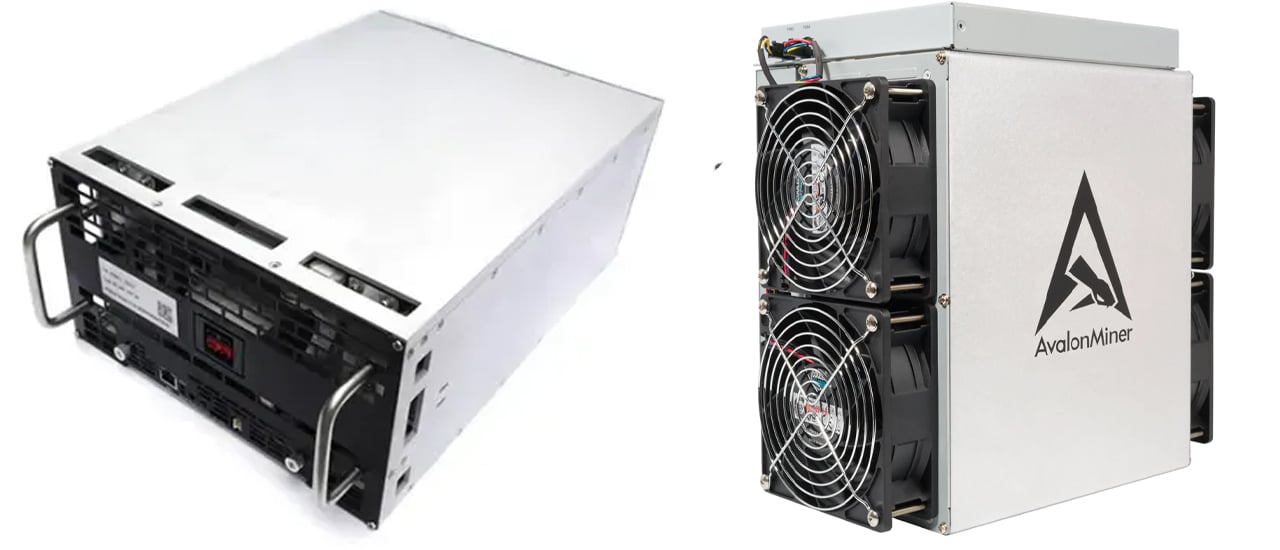18 Profitable ASIC Devices and the Dominance of Three Major Manufacturers Revealed – Mining Bitcoin News
(Originally posted on : Bitcoin News )
According to statistics from mid-May 2023, 18 different application-specific integrated circuit (ASIC) bitcoin mining devices are profitable using today’s bitcoin exchange rates. Additionally, the top bitcoin mining machines today are made by three prominent ASIC manufacturers, as fabrication competition these days is limited.
18 ASICs Profit With Electricity Costs at $0.12 per kWh and Today’s Bitcoin Exchange Rates
The average hashrate of the Bitcoin blockchain over the last 2,016 blocks stands at approximately 353.9 exahash per second (EH/s) at present. In an impressive feat this month, on May 2, 2023, at block height 787,895, the network reached an unprecedented peak of 491.15 EH/s. Meanwhile, the price of bitcoin (BTC) has been steadily hovering slightly below the $27K mark. Real-time mining rig data gathered from asicminervalue.com reveals that there are 18 profitable SHA-256 ASIC miners in operation using current BTC exchange rates.

Given the present value of BTC and the rapid surge in hashrate, one might expect a multitude of ASIC manufacturers to be actively crafting advanced mining rigs in 2023. Surprisingly, however, the landscape is dominated by just three prominent ASIC fabricators exclusively focused on designing mining rigs for bitcoin extraction: Bitmain, Microbt, and Canaan. All 18 of the leading ASIC bitcoin miners, compatible with SHA-256 and currently generating profits, originate from these three manufacturers.

The Top 6 Most Profitable ASIC Bitcoin Miners on the Market in 2023
The top bitcoin mining rig is the Bitmain Antminer S19 XP Hydro, boasting a hashrate of 255 terahash per second (TH/s). With its establishment dating back to 2013, Bitmain has cemented its presence in the industry over the years, manufacturing 10 out of today’s top 18 ASIC miners. Taking into account current BTC exchange rates, data reveals that the S19 XP Hydro yields an estimated daily profit of approximately $9.29, factoring in an electricity cost of $0.12 per kilowatt hour (kWh).

In close pursuit, the Antminer S19 XP, producing 140 TH/s, firmly secures its position as the second most lucrative ASIC rig. The S19 XP rakes in an estimated daily profit of $4.82 while upholding the same electricity costs. Trailing closely behind is Microbt’s Whatsminer M56S, commanding 212 TH/s and claiming the spot as the third most profitable bitcoin miner in the current market. Projections suggest that the M56S yields a daily profit of $4.44.

Following suit, the Antminer S19k Pro produces a hashrate of 136 TH/s, while the Antminer S19 Pro+ Hydro clocks in at 198 TH/s. These two miners are estimated to generate a daily profit ranging from $3.40 to $3.70. The fifth most profitable ASIC mining rig is Canaan’s Avalon A1366 which produces 130 TH/s. At $0.12 per kWh, the Avalon A1366 gets an estimated $3.17 per day in profit.
With electricity costs set at $0.12 per kilowatt hour (kWh) and considering the prevailing BTC prices, a total of 18 mining devices prove to be profitable. However, if the electricity rate drops below $0.12 per kWh, a broader range of machines with lower terahash outputs become financially viable.
While the global average electricity rate hovers around $0.14 per kWh, there’s a decent amount of countries, including Iran, Cambodia, Afghanistan, Belarus, Cape Verde, Brazil, Central African Republic, Bhutan, and Azerbaijan, among others, where electricity rates range from $0.01 to $0.05 per kWh.
What are your thoughts on the current landscape of Bitcoin mining and the dominance of a few major manufacturers? Share your insights and opinions in the comments section below.
Image Credits: Shutterstock, Pixabay, Wiki Commons
Disclaimer: This article is for informational purposes only. It is not a direct offer or solicitation of an offer to buy or sell, or a recommendation or endorsement of any products, services, or companies. Bitcoin.com does not provide investment, tax, legal, or accounting advice. Neither the company nor the author is responsible, directly or indirectly, for any damage or loss caused or alleged to be caused by or in connection with the use of or reliance on any content, goods or services mentioned in this article.







 Bitcoin
Bitcoin  Ethereum
Ethereum  Tether
Tether  XRP
XRP  USDC
USDC  Solana
Solana  TRON
TRON  Dogecoin
Dogecoin  Lido Staked Ether
Lido Staked Ether  Figure Heloc
Figure Heloc  Bitcoin Cash
Bitcoin Cash  WhiteBIT Coin
WhiteBIT Coin  Cardano
Cardano  USDS
USDS  LEO Token
LEO Token  Wrapped stETH
Wrapped stETH  Hyperliquid
Hyperliquid  Ethena USDe
Ethena USDe  Wrapped Bitcoin
Wrapped Bitcoin  Canton
Canton  Binance Bridged USDT (BNB Smart Chain)
Binance Bridged USDT (BNB Smart Chain)  Chainlink
Chainlink  Monero
Monero  Stellar
Stellar  USD1
USD1  Wrapped eETH
Wrapped eETH  Rain
Rain  Dai
Dai  sUSDS
sUSDS  Hedera
Hedera  Zcash
Zcash  PayPal USD
PayPal USD  Coinbase Wrapped BTC
Coinbase Wrapped BTC  Litecoin
Litecoin  Avalanche
Avalanche  Shiba Inu
Shiba Inu  WETH
WETH  Sui
Sui  Toncoin
Toncoin  World Liberty Financial
World Liberty Financial  USDT0
USDT0  Cronos
Cronos  Tether Gold
Tether Gold  MemeCore
MemeCore  PAX Gold
PAX Gold  Uniswap
Uniswap  Polkadot
Polkadot  BlackRock USD Institutional Digital Liquidity Fund
BlackRock USD Institutional Digital Liquidity Fund  Ethena Staked USDe
Ethena Staked USDe  Mantle
Mantle  Aave
Aave  Falcon USD
Falcon USD  Aster
Aster  Pepe
Pepe  Bittensor
Bittensor  Global Dollar
Global Dollar  OKB
OKB  Circle USYC
Circle USYC  Bitget Token
Bitget Token  Ripple USD
Ripple USD  syrupUSDC
syrupUSDC  HTX DAO
HTX DAO  Pi Network
Pi Network  Sky
Sky  Ethereum Classic
Ethereum Classic  BFUSD
BFUSD  NEAR Protocol
NEAR Protocol  Ondo
Ondo  Superstate Short Duration U.S. Government Securities Fund (USTB)
Superstate Short Duration U.S. Government Securities Fund (USTB)  POL (ex-MATIC)
POL (ex-MATIC)  Internet Computer
Internet Computer  Gate
Gate  Pump.fun
Pump.fun  KuCoin
KuCoin  Cosmos Hub
Cosmos Hub  Worldcoin
Worldcoin  Jupiter Perpetuals Liquidity Provider Token
Jupiter Perpetuals Liquidity Provider Token  Midnight
Midnight  NEXO
NEXO  Jito Staked SOL
Jito Staked SOL  USDtb
USDtb  Ethena
Ethena  Spiko EU T-Bills Money Market Fund
Spiko EU T-Bills Money Market Fund  Binance-Peg WETH
Binance-Peg WETH  Rocket Pool ETH
Rocket Pool ETH  Official Trump
Official Trump  Algorand
Algorand  Binance Bridged USDC (BNB Smart Chain)
Binance Bridged USDC (BNB Smart Chain)  Render
Render  USDD
USDD  Wrapped BNB
Wrapped BNB  Janus Henderson Anemoy AAA CLO Fund
Janus Henderson Anemoy AAA CLO Fund  Function FBTC
Function FBTC